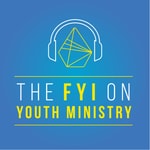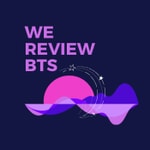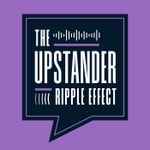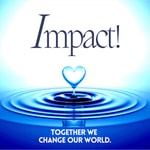The Love Theorist – Details, episodes & analysis
Podcast details
Technical and general information from the podcast's RSS feed.
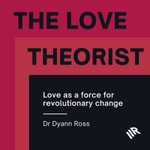
The Love Theorist
Dyann Ross
Frequency: 1 episode/20d. Total Eps: 48

thelovetheorist.substack.com
Recent rankings
Latest chart positions across Apple Podcasts and Spotify rankings.
Apple Podcasts
🇬🇧 Great Britain - socialSciences
14/06/2025#96🇬🇧 Great Britain - socialSciences
13/06/2025#77🇬🇧 Great Britain - socialSciences
12/06/2025#58
Spotify
No recent rankings available
Shared links between episodes and podcasts
Links found in episode descriptions and other podcasts that share them.
See allRSS feed quality and score
Technical evaluation of the podcast's RSS feed quality and structure.
See allScore global : 49%
Publication history
Monthly episode publishing history over the past years.
Burnout is betrayal
lundi 9 juin 2025 • Duration 21:14
There is a common misunderstanding that if you are burnt out you can’t cope, that you are weak, that you can’t do your job. Burnout needs to be re-defined so we don’t keep blaming ourselves when our workplace has betrayed us. In fact signs of burnout are not the end of your strength rather that you are needing all your resources to do your job in taxing circumstances. Burnout can be thought of as our bodies protesting when our hearts have been over-ruled or hurt too many times.
In this podcast I suggest that by recognising several key feelings, namely, anguish, hopelessness, despair and shame that we can then trace the source of those exhausting and confidence depleting experiences. Drawing on Brene Brown’s idea of institutional betrayal, I suggest our heart-of-heart feelings are warning signs that the workplace is hurting us by unfair and unkind actions, perhaps also sometimes by failures to act to show care and regard for us. Our values can be betrayed when we can’t act to uphold them due to workplace toxicity or extreme demands. There can also be a betrayal in not recognising our effort and contribution. And the betrayal of the broken promise that our caring work of others would be held, supported and honored.
When institutional betrayal is rampant, this is not about individual failings to do our job well or to cope better, this is about a culture of complicity and shame (Brown 2021). The purpose, whether intentional or not, is to control workers through fear and undermining through blaming people for workplace short-comings. Burnout is experienced in our bodies and is thus very personal. Burnout is not a personal experience only though as it occurs through relationships and the patterns inherent in the workplace culture. It is an act of strength to survive or flourish in workplaces when feeling burnout and being impacted daily by betrayals.
Thank you for listening to my podcast and for supporting my work. You can follow me on TikTok and Instagram. You might find my book - Broken-heartedness: Towards love in professional practice - interesting for ideas and skills to resist harmful people and places, by being guided by the love ethic. Available at https://www.revolutionaries.com.au/books/p/bh
Cited reference:
Brown, B. (2021). Atlas of the heart. London: Penguin Random House.
Do feel free to drop me a comment here or I can be contacted directly at dyann@dyannross.com
This is a public episode. If you would like to discuss this with other subscribers or get access to bonus episodes, visit thelovetheorist.substack.com
Zen, helping and compassionate love
mardi 3 juin 2025 • Duration 38:20
These last months I have had the privilege of tutoring in two counselling courses which are about the nature of helping and the kinds of experience which cause people to seek out a counsellor, social worker or psychologist … and many other professions in the human services sector. We spent a lot of time looking at theories, models, techniques and resources to help people. I had an uneasy sense for most of the time that we weren’t considering the whole picture of what helping is about. I stood in front of my bookshelf one night puzzling over what was bothering me. I picked up the beautiful book by David Brandon - Zen in the art of helping - which he wrote in 1976. That’s how long I’ve been inspired by his writing.
Brandon is a social worker and a practising Zen Buddhist monk. He explores the nature of helping from both these viewpoints and in so doing gives us an appreciation of what the idea of Zen - about nowness (and more) - can bring to our practice and lives. This podcast belongs in my set of podcasts in this collection of From my bookshelf, where I read excerpts from the book and make some additional comments of relevance to me and hopefully you, the listener.
I find the idea of Zen - the presence that is shared between people who are of equal intrinsic worth - as being about love, really interesting. I hadn’t made that connection in my earlier re-readings of Brandon’s book. The place of compassion is an integral dimension of love in this Zen space and is where healing and connection can happen. Much of Brandon’s book recounts what gets in the way of helping that really helps. In particular, he uses his own experiences to caution about our own internal motivations, judgements, biases and vulnerabilities that can undermine the best of intentions. I also appreciate that he recognises the societal factors that make it so hard to really help another person.
From this reading, I now aim to include the idea of Zen into my theory of love with its call to be aware, to be willing to keep learning, especially with and from the person we might be seeking to help. And to also always be alert to power inequalities both interpersonally in our work and home places … and to act to cause no harm arises due to these inequalities.
Drop me a note in comments and tell me what you think.
Thanks for your support.
Information about the source book for this podcast:
Brandon, D. (1976). Zen in the art of helping. England: Arkana Penguin Books.
My theory of love is presented in my book:
Ross, D. (2023). Broken-heartedness: Towards love in professional practice. Brisbane: Revolutionaries.
Contact me:
dyann@dyannross.com
This is a public episode. If you would like to discuss this with other subscribers or get access to bonus episodes, visit thelovetheorist.substack.com
When burnout is caused by broken-heartedness
vendredi 4 octobre 2024 • Duration 13:50
This podcast is an exploration of the potential of love to assist social workers and other practitioners in understanding their own wounded hearts. Thus, the focus in on the practitioner and how we can become exhausted and depleted at work. This is typically called burnout. I suggest that while this term is popular and conveys a sense of what is happening, it does not consider the deeper causes of burnout. Broken-heartedness has many causes and ways of being experienced. When feeling burnout because of deep heart wounding it needs a different order of self care and responses from your workplace supervisors.
What I'm particularly interested in discussing with you is if social workers actually experience lovelessness in the workplace, where we're treated unfairly, where we're not recognised and affirmed and properly supported to do the important work we're doing. This deep heart wounding once recognised can be cared for by pivoting on the pain, drawing on the power of love. This pivoting begins the transformation of the pain into heart warming healing. When we refuse to react from our pain by harming others and pay forward with love, this is what mends broken-hearts. The symptoms of burnout ease and our wellbeing improves each time we act drawing on the power of love.
The useful videos on burnout that I mention are by Psych2Go, one example is called “6 signs you’re burnout, not lazy”.
The podcast builds on these other resources to locate the issue of burnout in workplace violence and other factors often beyond the direct responsibility of the practitioner. Self care is important but not always enough to mend broken-heartedness.
This is a public episode. If you would like to discuss this with other subscribers or get access to bonus episodes, visit thelovetheorist.substack.com
Social work and love
samedi 14 septembre 2024 • Duration 14:50
As a social work educator it is important to think deeply and carefully about the values and ethics that guide my teaching. The next generation of social workers at universities are wanting to know how to make a difference in the world. They tell me their main motivation is helping people who have experienced trauma, loss and injustice. Just what might really help people is what social work degrees are all about. For me, the ethic of love, which has informed all the great nonviolent social and environmental movements across the planet, is a central part of helping people.
In this podcast I show how love can be expressed in social work practice with examples such as the ability to be present and show empathy to the other person. This interlinks with the ability to listen deeply which comes from really caring about what the person is saying and what is important to them. Closely related is the ability to stand with people who have been harmed, treated unfairly and are discriminated against. Love for people means justice for them really matters. This commitment to enabling social justice is the other key ethic of social work. It involves knowing how to understand what causes injustice and how to partner with people to address the harm and unfairness. Holding hope when a person lacks hope and supporting a person’s dignity in dehumanising situations are needed for love to be experienced.
I hope you find my ideas useful in validating what you already do to practice love at work.
My most recent book - Broken-heartedness: Towards love in professional practice, published by Revolutionaries - details more examples of love practices for social work and other helping professions. It can be purchased at https://www.revolutionaries.com.au/books/p/bh
You can follow me on instagram https://www.instagram.com/drdyannross
This podcast is also available on You Tube by searching for the video with the same title.
This is a public episode. If you would like to discuss this with other subscribers or get access to bonus episodes, visit thelovetheorist.substack.com
Broken-heartedness and Social Work, Part 2
mercredi 28 août 2024 • Duration 28:40
This is a second discussion of broken-heartedness and social work where more detail is provided in how to think deeply about the causes of broken-heartedness and ways to respond to it. Social work knowledge and skills, when aligned with a love ethic, can inform a wide range of love practices. In turn these love practices align with nonviolence and doing no harm. The power of love in professional practice can challenge, resist and change the use of violence and lovelessness. Minority status groups’ experience of injustice can show as stigma and discrimination, possibly even as blaming them for the issues. Social workers can stand with people experiencing injustice and stigma and support stigma resistance. This will enable people to understand and protect themselves from the internalising of blame. At the same time the causes of broken-heartedness are typically beyond the impacted peoples’ sphere of control. Thus, social workers need to enable critical thinking about any form of violence and hold the powerful people and groups responsible. Love as actions towards the highest good possible in a situation, always matters no matter how small the action.
This is a public episode. If you would like to discuss this with other subscribers or get access to bonus episodes, visit thelovetheorist.substack.com
Broken-heartedness and social work
mardi 20 août 2024 • Duration 27:11
As a social worker, I have often worked with people who describe their experiences as being broken-hearted or heart-breaking. For many years I failed to recognise this recurring language in peoples’ stories. This is a podcast that defines broken-heartedness and explains how I regard broken-heartedness as a crucial tool for social workers to build our understanding of the depths of harm and loss the people we engage with may be experiencing.
Specifically, broken-heartedness is a socio-emotional phenomenon that goes beyond the medical diagnosis of ‘broken-hearted syndrome’. In medical terms this syndrome is occurring when extreme stress damages the muscles of the heart. It can lead to heart disease and heart attacks. The purpose for social workers is not to diagnose or to impose the label of broken-heartedness on people we work with. Rather, the aim is to sensitise us to the social, political and economic factors that can directly impact peoples’ well-being and can lead to broken-heartedness. As such it can guide social workers in responding with deep empathy, in listening to peoples’ stories and in recognising how violence and injustice can cause broken-heartedness.
This is a public episode. If you would like to discuss this with other subscribers or get access to bonus episodes, visit thelovetheorist.substack.com
Needlessly eating our Kin feeds the wealthy elites
samedi 4 mai 2024 • Duration 52:23
This is the second part of chapter 3 called ‘Eco injustice’ from my book, Broken-heartedness: Towards love in professional practice. Like some of the other chapters, it is very difficult to read for the tragedies it describes. Here my personal experiences with other animals who are used by humans required of me an ethical re-set as an adult towards non harming of all animals. As the daughter of a farmer and hunter and a citizen of a society that is prejudiced against other animals, it was a slow awakening that species injustice has profoundly disturbing impacts.
Issues that comprise matters of eco injustice are very troubling and do not have immediate solutions. The circumstances for millions of farmed animals across the planet are dire and show the devastating underbelly of economies which rely on mass scale slaughter of defenceless animals. Humans love other animals, and it is important to us that they do not experience cruelty. Humans do not need to eat other animals to access protein and other nutrients. Yet there is a moral amnesia due to the animal industrial complex operated by wealthy private businesses that normalises the meat industry. The wealthy are typically financially subsidised by governments which sanction the use of some animals for human consumption.
A societal level ethical re-set which equally values all our Kin is needed for personal and world peace. It begins with a loving regard for other animals of all kinds.
You can purchase a copy of my book at
https://revoltbooks.com/
This is a public episode. If you would like to discuss this with other subscribers or get access to bonus episodes, visit thelovetheorist.substack.com
Eco injustices highlight the wicked problems of our times
samedi 4 mai 2024 • Duration 52:50
This is a reading of chapter 3 called ‘Eco injustice’ from my book, Broken-heartedness: Towards love in professional practice. It is the first part of a big chapter which relates how my personal and professional experiences intersected with a growing awareness of harm and injustice against Nature. In so doing I show an aspect of what is called a wicked problem where Australia’s economy is dependent on large scale mining of natural resources - ie Nature - and many peoples’ livelihoods, including my own family, and many communities’ viability are also dependent on big miners. The costs are borne by the environment but not only. The intersectionality of harm to people adjacent to mining operations, biodiversity loss and hence threats to some endangered species is apparently a cost that is traded for claimed benefits from this unsustainable economics. I show how very personal this matter of eco injustice is for me and how it is also very political. The trade offs need not be so highly stacked against the environment - Nature - with whom we are all intricately interconnected.
If you are interested in buying a copy of my book it can be purchased here
https://revoltbooks.com/
This is a public episode. If you would like to discuss this with other subscribers or get access to bonus episodes, visit thelovetheorist.substack.com
Eco justice to extend social justice concerns about people to other animals and Nature
samedi 4 mai 2024 • Duration 38:33
This is a reading of chapter 7 from my new book, Broken-heartedness: Towards love in professional practice. It is published by Revolutionaries which is a small independent book company that promotes ideas and ways of being for a more loving and peace filled world. This is a perfect fit for me as I show in this chapter how desire for peace and love necessitates the upholding of a key moral principle of the equal moral worth of all kinds of beings. As a social worker for many years, I’ve been almost totally focused on social justice for social groups who are discriminated against. But I have come to understand how social justice for people is intertwined with species justice for other animals and environmental justice for Nature. In fact, I believe that justice through being loving and nonviolent towards some species of other animals, namely farmed animals, is the key to addressing all other forms of injustice.
Listen to my podcast to hear how I have come to this view and of how this equal moral worth principle along with an unshakeable belief in love and the power of nonviolence underpins all types of justice work at this time on the planet. When justice is experienced by the most harmed beings, there will be no broken-heartedness. Mercy will be shown.
You can buy this book and my two other books - The revolutionary social worker: The love ethic model and The revolutionary social worker: Love ethic companion - published by Revolutionaries at https://revoltbooks.com/
This is a public episode. If you would like to discuss this with other subscribers or get access to bonus episodes, visit thelovetheorist.substack.com
How to practice with love, nonviolence and eco-justice
samedi 4 mai 2024 • Duration 24:12
This podcast focuses on the end section of the Chapters 5, 6 and 7 respectively entitled, ‘Love’; Nonviolence’ and; ‘Ecojustice’ from my book Broken-heartedness: Towards love in professional practice. These end sections give a range of examples of how to practice love, nonviolence and eco-justice. Many of the ideas and ways will be familiar to listeners. In this sense I aim to affirm and cheer you on for what you are already do, who you already are in the world. I also provide insights into how my understanding of broken-heartedness asks something more of the power elites and privileged people and organisations. When powerful people who cause harm and devastation and do nothing to address it, this is a moral crime against the impacted people, other animals and Nature. It cannot be left to the broken-hearted to raise the justice issues and try to solve them when the issues are not of their making.
My book is available at https://revoltbooks.com/products/broken-heartedness
This is a public episode. If you would like to discuss this with other subscribers or get access to bonus episodes, visit thelovetheorist.substack.com


